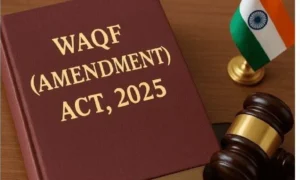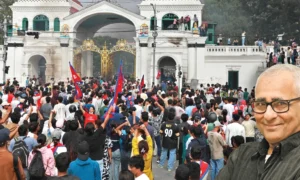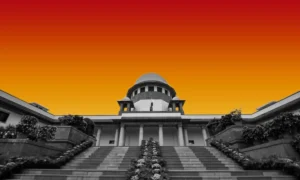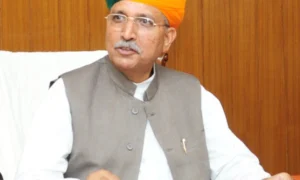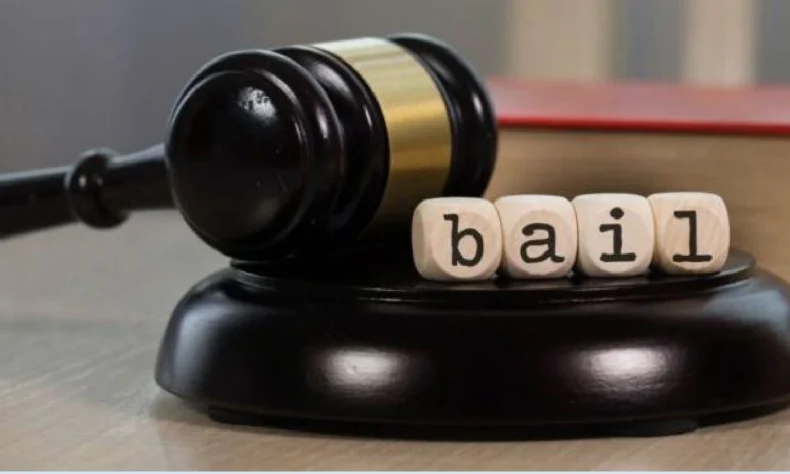
By Binny Yadav
The Supreme Court’s recent censure of the Bombay High Court in Anna Waman Bhalerao vs State of Maharashtra has reignited an enduring debate on liberty and justice. In 2019, two retired revenue officers sought anticipatory bail. Yet, their pleas gathered dust for over six years, leaving them in prolonged legal uncertainty. This July, the High Court finally dismissed their applications—despite interim protection having continued all along.
In a sharp rebuke, a bench of Justices JB Pardiwala and R Mahadevan ruled that all bail applications, whether regular or anticipatory, must be decided expeditiously—ideally within two months of filing. More than a procedural guideline, the judgment declared: delayed bail is denied bail. The message was clear—personal liberty cannot be a hostage to judicial inertia.
BAIL LAWS AND LIMITATIONS
India’s bail framework stems from the Code of Criminal Procedure, 1973, specifically Sections 436 to 439, which govern bail in bailable and non-bailable offences and anticipatory bail. However, these provisions offer minimal detail. Over the decades, courts have filled the void, creating a body of interpretative jurisprudence that defines liberty in practice.
From the outset, courts have emphasised that denying bail amounts to extraordinary interference with the fundamental right to liberty under Article 21 of the Constitution. Yet, in practice, bail hearings drag on, and prisons remain overcrowded with undertrials.
THE JURISPRUDENTIAL ARC
Justice VR Krishna Iyer’s early judgments remain foundational. In State of Rajasthan vs Balchand (1977), he articulated the now-iconic principle: “Bail, not jail.” In Gudikanti Narasimhulu vs Public Prosecutor (1978), he warned against whimsical denial of liberty.
The watershed Hussainara Khatoon vs State of Bihar (1979-80) exposed the grave injustice of thousands of undertrials languishing in prison without trial. The Supreme Court declared speedy trial part of the right to life and liberty, mandating release on bail and sparking the legal-aid movement.
Decades later, the Supreme Court has repeatedly reinforced these principles. In Sanjay Chandra vs CBI (2011), it held that pre-trial detention must not substitute punishment. Arnesh Kumar vs State of Bihar (2014) cautioned against the culture of automatic arrests. The recent Satender Kumar Antil vs CBI (2022) judgment further urged bail wherever charge sheets are filed without arrest, lamenting indiscriminate arrests that clog the system. Yet routine incarceration remains the norm.
THE CRISIS OF DELAYS
India’s most profound bail crisis is judicial delay. According to the National Crime Records Bureau, over three-fourths of the prison population comprises undertrials, many of whom have served longer than the maximum sentence for their alleged offence.
The Bhalerao ruling calls this practice out: delayed bail equals denied bail. The two-month disposal directive attempts to re-centre constitutional urgency in adjudicating liberty claims.
LIBERTY: THE CONSTITUTIONAL CORE
Article 21 of the Constitution guarantees that no person shall be deprived of life or personal liberty except according to a procedure established by law. Courts have expansively interpreted this right, insisting that liberty cannot be hostage to procedural inertia. In Arnab Manoranjan Goswami vs State of Maharashtra (2020), the Supreme Court underscored: “Deprivation of liberty even for a single day is one day too many.”
Despite such clarion calls, trial courts often treat bail as a discretionary favour rather than a constitutional right. The presumption of innocence is eclipsed by a presumption of custody. This judicial culture erodes public trust and undermines the rule of law.
The Bhalerao ruling offers a chance for course correction. The judiciary stands at a crossroads—either uphold bail as the constitutional cornerstone it is meant to be or allow it to remain a grudging concession. The choice will determine whether Article 21 lives robustly in Indian courtrooms or survives merely on paper.
—The writer is a New Delhi-based journalist, lawyer and trained mediator
📰 Crime Today News is proudly sponsored by DRYFRUIT & CO – A Brand by eFabby Global LLC
Design & Developed by Yes Mom Hosting

